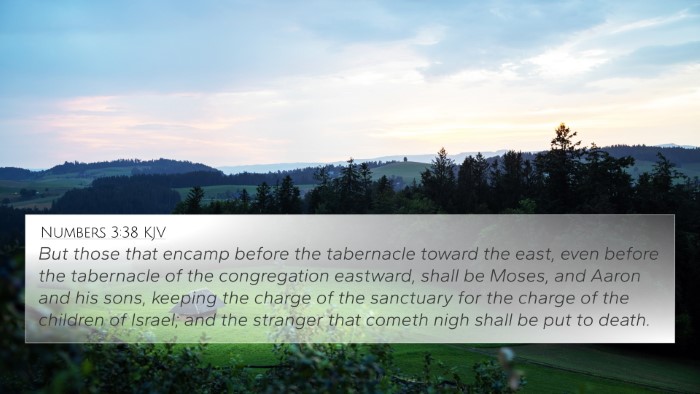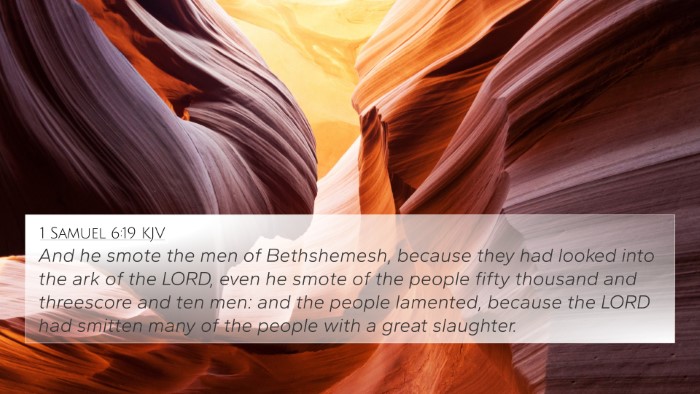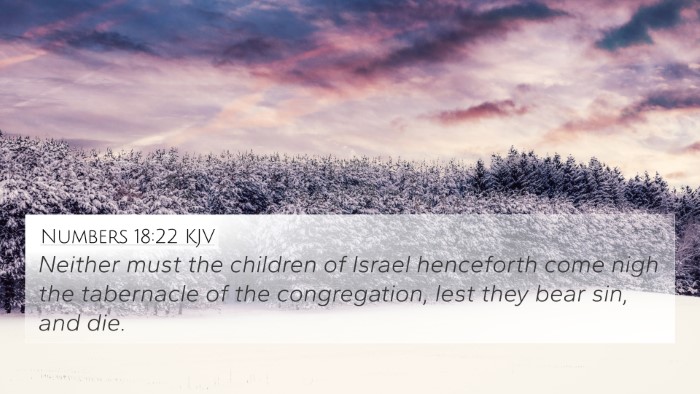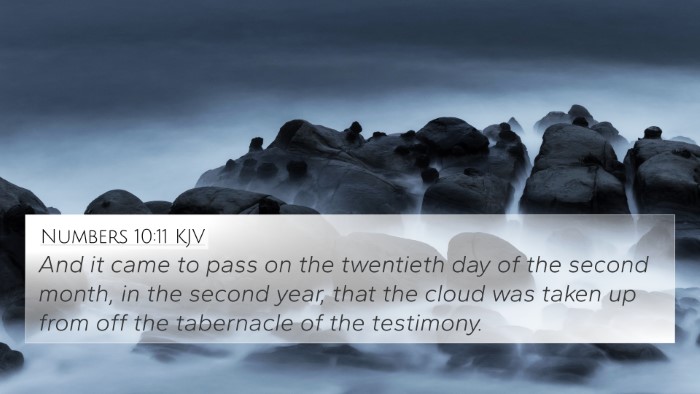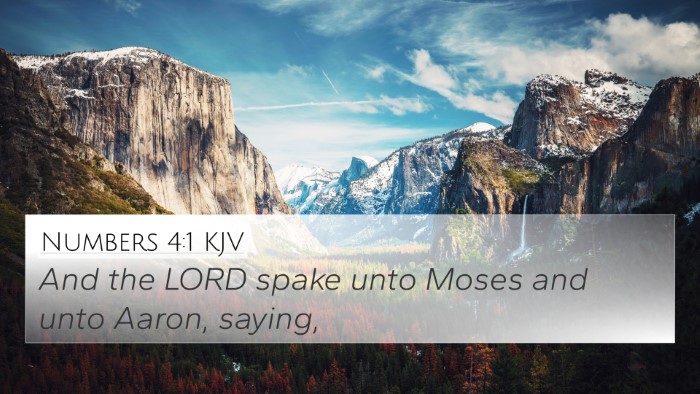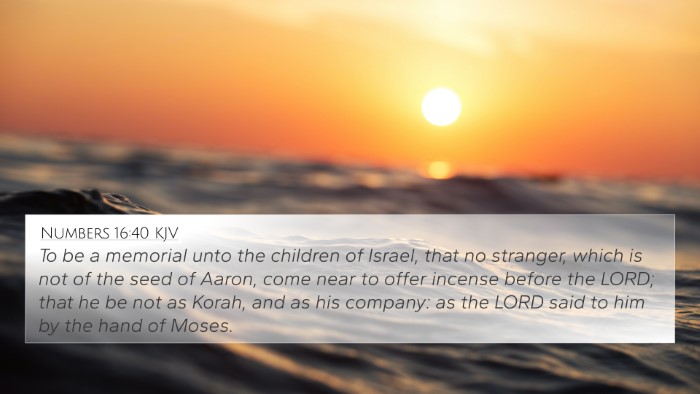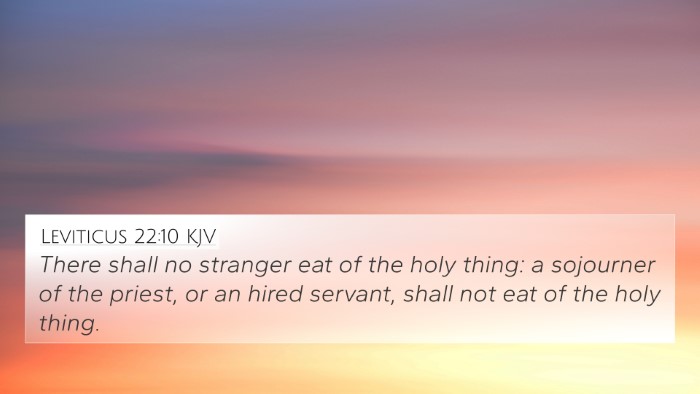Understanding Numbers 1:51
Numbers 1:51 states, "And when the tabernacle setteth forward, the Levites shall take it down: and when the tabernacle is to be pitched, the Levites shall set it up: and the stranger that cometh nigh shall be put to death." This verse provides crucial insight into the duties assigned to the Levites regarding the tabernacle, emphasizing their unique role and the importance of holiness surrounding the sacred space.
Summarized Meanings from Public Domain Commentaries
-
Matthew Henry: Henry emphasizes the role of the Levites as guardians and servants of the tabernacle, outlining that their responsibilities involved both the careful dismantling and re-establishing of the sanctuary. This verse expresses the severity of approaching the holy without proper designation, reflecting God's holiness and the need for reverence.
-
Albert Barnes: Barnes elaborates on the concept of the sanctity of the tabernacle, asserting that the mentioning of "stranger" refers to those not designated by God for service. In his interpretation, he reinforces the idea that borders established between sacred and secular underscore God's serious view on holiness and community structure in worship.
-
Adam Clarke: Clarke provides a broader theological framework, stating that the order of the Levites serves a dual purpose: logistical organization within the camp and the representation of divine presence among the Israelites. He points to the severe consequence for unauthorized access, indicating a clearer understanding of covenantal holiness.
Related Bible Cross-References
To further enhance your understanding of Numbers 1:51, here are several critical cross-references from the Bible that illuminate its themes:
- Exodus 38:21: Details about the tabernacle and the roles of the Levites.
- Leviticus 10:1-2: Discusses the severe consequences of unauthorized actions in the tabernacle.
- Numbers 3:10: Addresses the duties of the Levites specifically.
- Deuteronomy 10:8: Mentions the selection of the Levites for carrying the Ark of the Covenant.
- Hebrews 13:10: Draws connections between sacrifices and priestly roles, correlating with Old Testament practices.
- 1 Chronicles 15:2: Explains the necessity of Levite involvement in the transportation of the Ark.
- Numbers 4:15: Further describes the responsibilities assigned to the Levites during the camp's journey.
Thematic Connections
The verse also invites thematic exploration through various scriptural connections, further revealing insights regarding holiness, separation, and service within the biblical narrative.
-
Holiness and Separation:
- Obedience to God's commands demonstrates separation from worldly practices (Leviticus 11:44).
- Involving oneself in tasks meant for the sacred realm results in severe admonition (1 Samuel 6:19).
-
Service and Responsibility:
- Signifying the importance of roles within spiritual leadership (Ephesians 4:11-12).
- Highlighting the Levites' dedicated call in the wilderness (Acts 6:4).
Understanding Contextual Significance
To fully grasp the weight of this verse, one must consider its historical context. Exodus through Deuteronomy captures God's meticulous planning for worship within His chosen people. The divine order established is not arbitrary but serves to maintain a clear distinction between the sacred and the common.
Conclusion
In summary, Numbers 1:51 signifies the pivotal role of Levites in ensuring the holiness of God's dwelling among His people. The dynamics of division, service, and reverence are woven throughout scriptures, making this verse an essential study point for believers seeking deeper understanding of their faith and worship practices.



